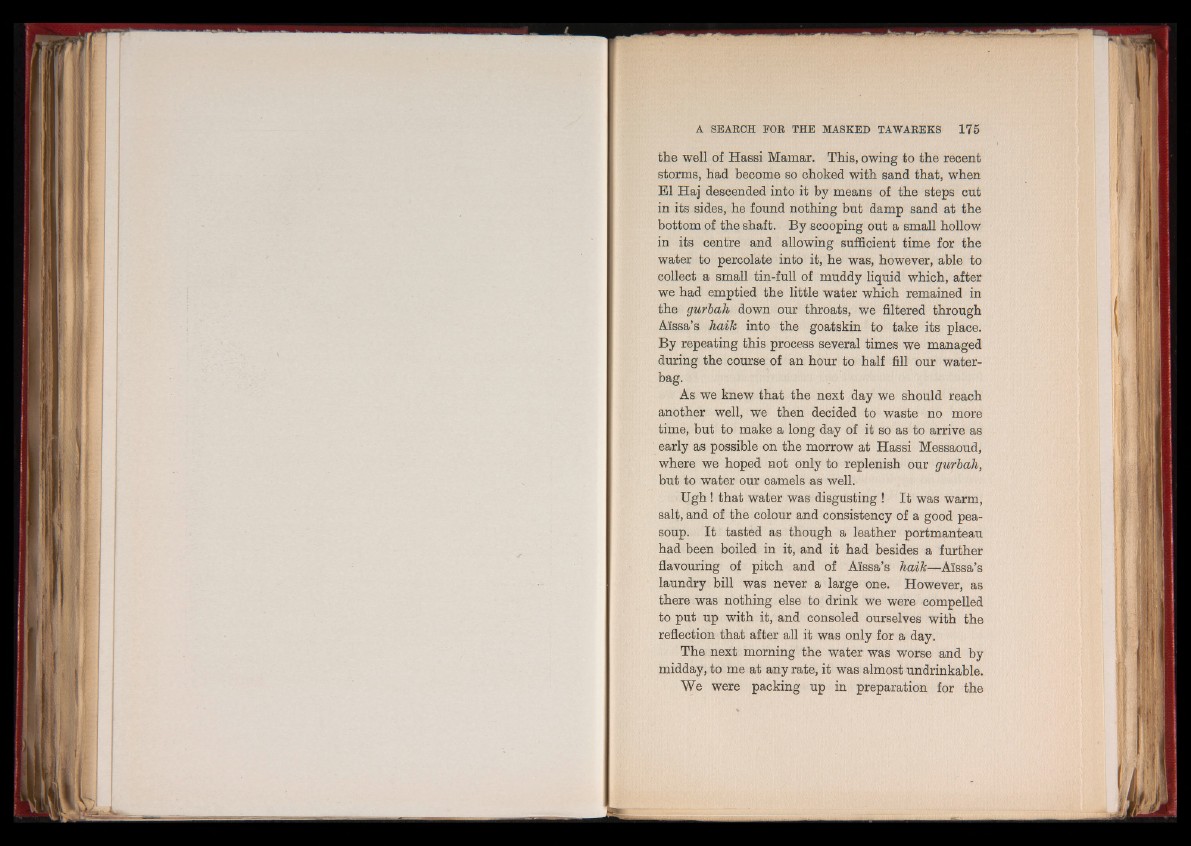
the well of Hassi Mamar. This, owing to the recent
storms, had become so choked with sand that, when
El Haj descended into it by means of the steps cut
in its sides, he found nothing hut damp sand at the
bottom of the shaft. By scooping out a small hollow
in its centre and allowing sufficient time for the
water to percolate into it, he was, however, able to
collect a small tin-full of muddy liquid which, after
we had emptied the little water which remained in
the gurbah down our throats, we filtered through
Aissa’s haik into the goatskin to take its place.
By repeating this process several times we managed
during the course of an hour to half fill our water-
bag.
As we knew that the next day we should reach
another well, we then decided to waste no more
time, but to make a long day of it so as to arrive as
early as possible on the morrow at Hassi Messaoud,
where we hoped not only to replenish our gurbah,
but to water our camels as well.
Ugh! that water was disgusting ! It was warm,
salt, and of the colour and consistency of a good pea-
soup. It tasted as though a leather portmanteau
had been boiled in it, and it had besides a further
flavouring of pitch and of Aissa’s haik—Aissa’s
laundry bill was never a large one. However, as
there was nothing else to drink we were compelled
to put up with it, and consoled ourselves with the
reflection that after all it was only for a day.
The next morning the water was worse and by
midday, to me at any rate, it was almost undrinkable.
We were packing up in preparation for the